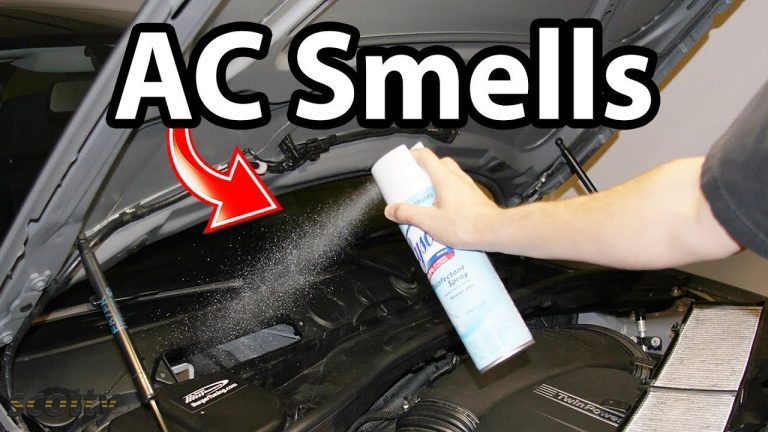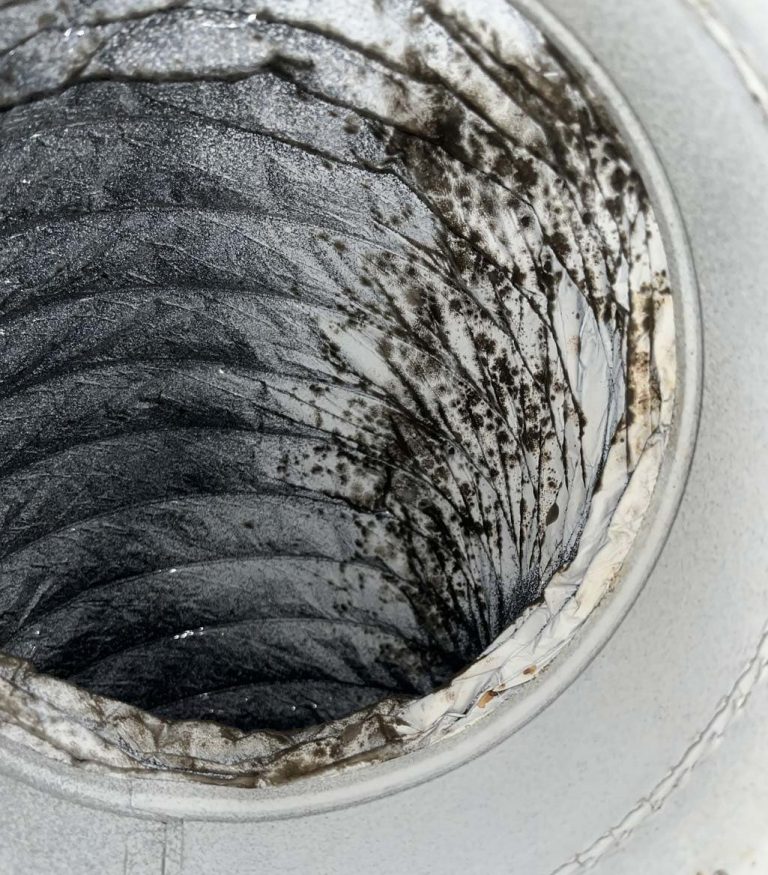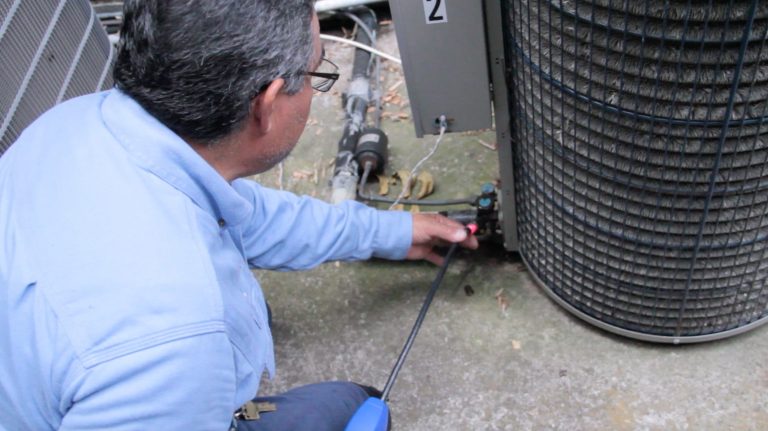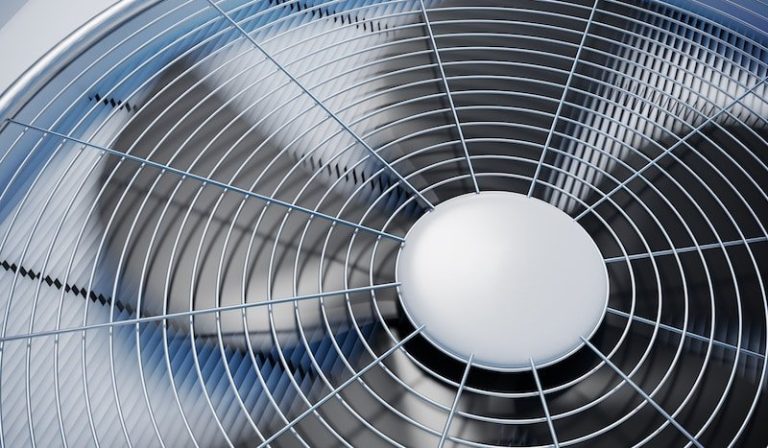Why Is My Air Conditioner Running But Not Cooling The House? 5 Possible Reasons Explained
If your air conditioner is running but not cooling the house, there could be several reasons for this issue. It could be due to a dirty air filter that is blocking airflow, a refrigerant leak, a faulty compressor, or insufficient insulation in the house. It is recommended to check and clean the air filter, make sure all vents are open and unobstructed, and if the issue persists, contact a professional HVAC technician for further inspection and repair.
Are you a homeowner or renter who relies on an air conditioner to keep your home cool and comfortable? Have you ever experienced the frustration of your air conditioner running but not actually cooling your house? If so, you’re not alone. Many people face this issue and struggle to understand what’s causing it and how to fix it.
In this blog article, we will explore the common problem of why your air conditioner may be running but not cooling your house. Whether you have a basic understanding of HVAC systems or consider yourself somewhat of an expert, we will provide valuable insights and solutions to help you tackle this issue.
Not only is it frustrating when your air conditioner fails to do its job, but it can also lead to discomfort and high energy bills. By understanding the potential causes and troubleshooting methods, you can save both time and money while ensuring your home stays cool during those hot summer months. Throughout the article, we will delve into the various factors that can contribute to this problem.
From issues with the thermostat or air filters to refrigerant leaks or compressor malfunctions, we will cover each aspect in detail. By the end of this article, you will have a comprehensive understanding of why your air conditioner may not be cooling your house and how to address the issue effectively. So, if you’re tired of sweating it out in your own home and want to regain control over your indoor climate, keep reading.
Thermostat Issues
Your air conditioner’s thermostat plays a crucial role in regulating the temperature inside your home. If your air conditioner is running but not cooling your house, it’s essential to check your thermostat settings. There are a few common thermostat issues that could be contributing to this problem:
Incorrect Temperature Setting
One of the most common reasons for an air conditioner running without cooling is an incorrect temperature setting on the thermostat. Check to make sure that the temperature is set lower than the current room temperature. If the thermostat is set higher, the air conditioner will only run the fan without producing cold air.
Faulty Thermostat Sensor
The thermostat sensor is responsible for measuring the temperature in the room and relaying this information to the air conditioner. If the sensor is faulty or incorrectly calibrated, it may not accurately detect the room temperature, leading to improper cooling. Consider contacting a professional HVAC technician to inspect and recalibrate the thermostat sensor if necessary.
Dirty or Clogged Air Filters
When was the last time you cleaned or replaced your air filters? Dirty or clogged air filters can significantly impact the cooling performance of your air conditioner. Over time, dust, dirt, and debris accumulate in the filters, obstructing the airflow and reducing the efficiency of the cooling process.
To address this issue, locate the air filters in your air conditioning system and check their condition. If they appear dirty or clogged, it’s time for a cleaning or replacement. Regularly maintaining and cleaning your air filters can help improve the cooling capacity of your air conditioner and ensure clean air circulation throughout your home.
Insufficient Refrigerant
Refrigerant, often referred to as the “lifeblood” of an air conditioning system, is responsible for absorbing heat from the indoor air and releasing it outside. If your air conditioner is low on refrigerant, it will struggle to cool your home effectively.
Refrigerant Leak
A refrigerant leak is one of the most common reasons for insufficient refrigerant levels. Over time, wear and tear or other factors can lead to leaks in the refrigerant lines. If you suspect a refrigerant leak, it’s crucial to contact a professional HVAC technician who can locate and repair the leak and recharge the refrigerant to the appropriate levels.
Improper Refrigerant Charge
In some cases, the air conditioner may not have been properly charged with refrigerant during installation or maintenance. This can result in insufficient cooling performance. Again, it’s best to consult a professional HVAC technician to assess the refrigerant charge and make the necessary adjustments if needed.
Compressor Issues
The compressor is a vital component of an air conditioning system, responsible for compressing the refrigerant and circulating it through the system. If the compressor is malfunctioning or not working correctly, it can impact the cooling ability of your air conditioner.
Electrical Problems
Faulty wiring, a blown fuse, or a tripped circuit breaker can cause the compressor to malfunction. These electrical issues can prevent the compressor from receiving the necessary power to function properly. If you suspect an electrical problem with your air conditioner, it’s essential to contact a qualified HVAC technician to diagnose and repair the issue.
Mechanical Problems
Various mechanical issues can affect the compressor’s performance, such as worn-out parts, motor failure, or refrigerant restrictions. These problems require professional expertise to identify and fix. Avoid attempting to repair the compressor yourself, as it involves working with complex components and potentially dangerous situations.
Air Duct Leaks or Inadequate Insulation
Air duct leaks or inadequate insulation in your home can lead to reduced cooling efficiency. If the cooled air is leaking out of the ducts before reaching the desired areas, your air conditioner will have to work harder to cool your home, resulting in poor performance.
It’s important to inspect your air ducts for any leaks or damage. You can do this by visually inspecting the ductwork or hiring a professional duct inspection service. Additionally, inadequate insulation in your walls, ceilings, or attic can allow hot air to infiltrate your home, counteracting the cooling efforts of your air conditioner. Proper insulation can help maintain a comfortable temperature and reduce energy waste.
Oversized or Undersized Air Conditioner
The size of your air conditioner plays a crucial role in its cooling performance. If your air conditioner is too large for your space, it can cool the area quickly without adequately removing humidity. On the other hand, an undersized air conditioner may struggle to cool a larger space effectively.
Consult with an HVAC professional to ensure that your air conditioner is the appropriate size for your home. They will consider factors such as square footage, insulation, and climate to determine the ideal size for optimal cooling efficiency.
Lack of Regular Maintenance
Regular maintenance is essential for the proper functioning of your air conditioning system. If you neglect routine maintenance tasks, such as cleaning the coils, lubricating the moving parts, and inspecting for any issues, your air conditioner’s performance may suffer.
Consider scheduling annual maintenance with a qualified HVAC technician. They can identify and address any potential problems before they escalate, ensuring your air conditioner operates efficiently and effectively.
Dealing with an air conditioner that runs but doesn’t cool your house can be frustrating, especially during the hot summer months. However, by understanding the potential causes and taking appropriate steps, you can address this issue effectively. From thermostat issues and dirty air filters to refrigerant leaks and compressor problems, each factor contributes to the overall cooling performance of your air conditioner.
Remember, some troubleshooting steps may require professional assistance, so don’t hesitate to contact an HVAC technician if you’re unsure. By maintaining your air conditioner and addressing any issues promptly, you can enjoy a cool and comfortable home throughout the year.
#1 Problem & Quick Fix with Central Air Conditioning Not Cooling
Frequently Asked Questions (FAQ)
Why is my air conditioner running but not cooling the house?
How can I clean the air filter?
What should I do if the refrigerant levels are low?
Why is my compressor not functioning properly?
What can cause blocked vents?
Final Thoughts: Troubleshooting and Solutions for an Air Conditioner that Doesn’t Cool
In conclusion, if you have ever experienced the frustration of your air conditioner running but not cooling your house, you are not alone. This blog article has provided valuable insights and solutions to help you understand and tackle this common problem.
The article began by acknowledging the frustration and discomfort that come with an air conditioner that fails to cool effectively. It emphasized the importance of understanding the potential causes and troubleshooting methods to save time and money, while ensuring a cool home during hot summer months.
Throughout the article, various factors that can contribute to this problem were discussed in detail. These include thermostat issues such as incorrect temperature settings or faulty sensors, dirty or clogged air filters, insufficient refrigerant due to leaks or improper charge, compressor issues related to electrical or mechanical problems, air duct leaks or inadequate insulation, oversized or undersized air conditioners, and the importance of regular maintenance. The article emphasized that addressing these issues requires a comprehensive understanding of the potential causes and may sometimes require professional assistance.
It encouraged readers to schedule annual maintenance with a qualified HVAC technician to ensure efficient and effective cooling performance. By implementing the solutions and troubleshooting methods discussed in the article, readers can regain control over their indoor climate and enjoy a cool and comfortable home throughout the year. In conclusion, if you find yourself in the frustrating situation of having an air conditioner running but not cooling your house, take action by considering all the potential causes discussed in this article and consult with a professional HVAC technician if necessary.






